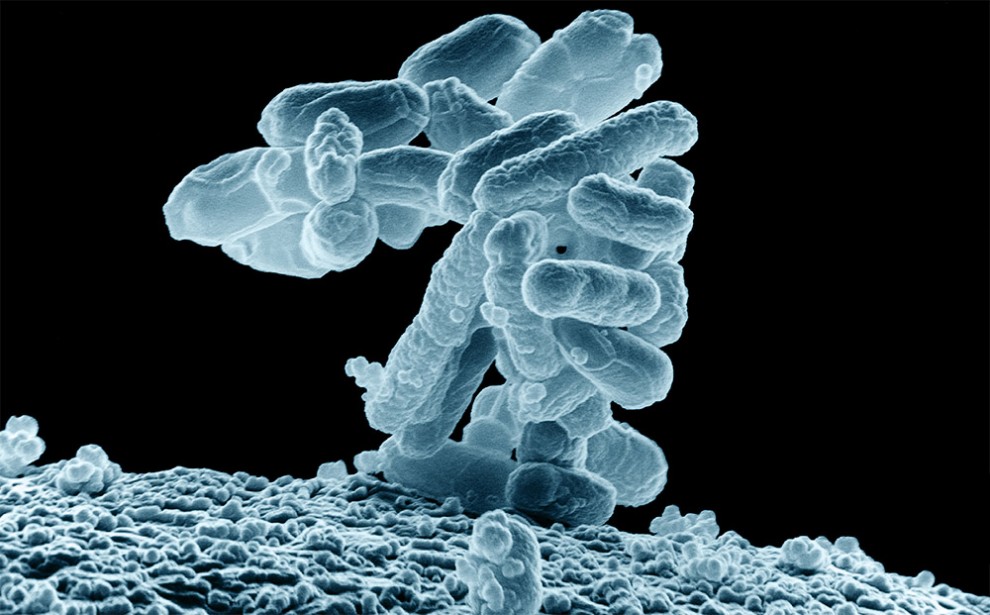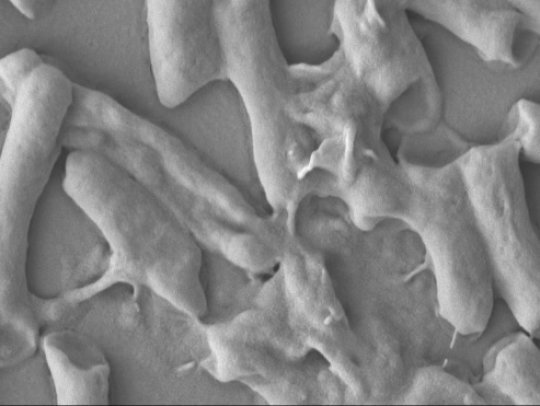
Researchers in Singapore have created a new material that is able to kill the E. coli bacteria in half a minute. This is great news because on a daily basis we are all exposed to millions of harmful bacteria that can lead to infectious diseases like the E. coli bacteria.
Researchers at the Institute of Bioengineering and Nanotechnology (known officially as IBN) of Agency for Science, Technology and Research (A*STAR), Singapore have created a new material that is able to completely destroy the bacteria. The complete study and test results have been published in the peer-review journal called Small.
IBN Executive Director Professor Jackie Y. Ying says the global threat of bacteria that are resistant to drugs has given a massive rise to the urgency for a need of new materials that can prevent and even kill the growth of harmful bacteria. The team’s new antimicrobial material may soon be used in consumer and personal care products in order to help promote ideal personal hygiene practices and prevent the spread of many kinds of infectious diseases.
Triclosan is a common ingredient found in many products, including toothpastes, soaps and detergents. It is used to prevent bacterial infections and has actually been linked to making bacteria resistant to antibiotics and causing adverse health effects. The European Union has restricted the use of triclosan in cosmetics and the United States Food and Drug Administration is conducting an on-going review of the ingredient and its potential dangers.

(Image credit: Institute of Bioengineering and Nanotechnology
There is a strong need for more suitable alternatives. This is what pushes IBN Group Leader Dr. Yugen Zhang and his team to continue to work on synthesizing chemicals. Their most recent compound is made up of molecules that are linked together very much like a chain. The material is called imidazolium oligomers and is able to kill 99.7% of the E. coli bacteria in the matter of 30 short seconds when aided by the chain-like structure which helps to penetrate the cell membrane and completely destroy the bacteria. Antibiotics are only able to kill the bacteria, leaving the cell membrane intact. When the cell structure is left behind, this allows for new antibiotic-resistant bacteria to begin growing, making it much harder to fight the bacteria the next time around.
Dr. Zhang says their unique compound can kill very quickly and inhibits the development of antibiotic-resistant bacteria. Computational chemistry studies have been able to support the experimental findings that the chain-like component works by attacking the cell membrane directly. The material is safe for use because it carries a positive charge that targets the more negatively charged bacteria without destroying any red blood cells.
Imidazolium oligomers begin in the form of a white powder that is completely soluble in water. Researchers quickly discovered that once it became dissolved in alcohol, it immediately began forming gels. The material may be something that could be incorporated into alcoholic sprays that are used in cleaning and sterilizing hospitals, and could be useful in home settings as well.
E. coli is a type of bacteria that is found within the intestines of both humans and animals. Some strains can cause very severe cases of diarrhea, abdominal pain and even fever. Such an infection is extremely contagious and is able to spread through contaminated food, water and can also spread through contact with infected people or animals. Good hygiene and proper food handling can help prevent infection, but the bacteria is generally still very difficult to get rid of as many people are in a hurry or become stuck in practices that do not promote good, healthy habits.



